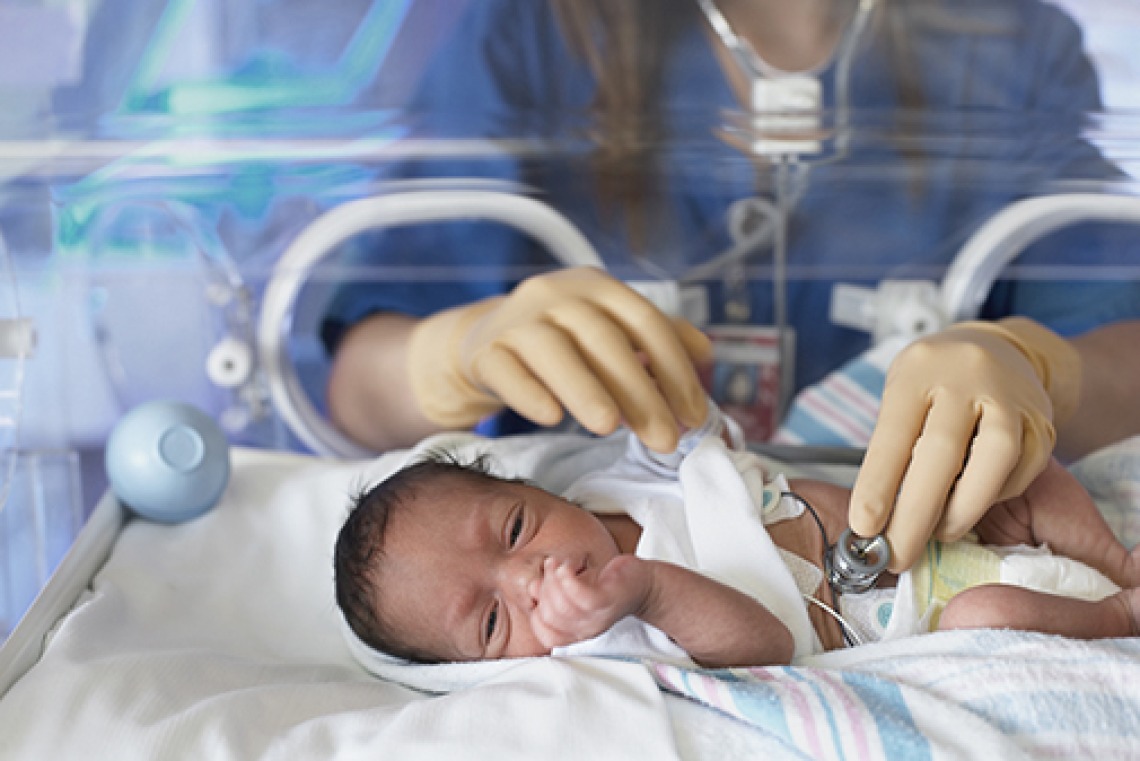Socioeconomic Conditions, Environment and Lifestyle Affect Severity of Fetal Alcohol Syndrome
Precision medicine uses data on an individual's person’s diet, exercise routine, family history, environment, genetics, and more to tailor treatment and prevention of certain conditions to that person’s unique characteristics.

Precision medicine uses data on an individual's person’s diet, exercise routine, family history, environment, genetics, and more to tailor treatment and prevention of certain conditions to that person’s unique characteristics. When people think of precision medicine, most do not think about fetal alcohol syndrome. Images of women struggling with alcohol addiction first come to mind when we think about this condition. However, new research is showing that the risk and severity of fetal alcohol syndrome varies widely depending on many environmental and lifestyle variables, including socioeconomic status, maternal nutrition, maternal age, paternal drinking and other factors. Knowledge of how these “personal” environmental characteristics of the woman who drinks during pregnancy can affect her baby is an important part of counseling to prevent damage to the baby from prenatal alcohol exposure.
Fetal alcohol syndrome disorders (FASD) are a range of conditions caused by alcohol consumption during pregnancy. Individuals with FASD can have a variety of signs and symptoms that range in severity from mild to profound. Although no amount of alcohol is safe to consume during pregnancy, the severity of the symptoms correlates with the amount and timing of alcohol that is consumed during pregnancy. Women who drink heavily, especially during the first trimester of pregnancy, tend to have the most severely affected children.

Children with the most severe form, fetal alcohol syndrome (FAS), have characteristically abnormal facial features, small head circumference, growth deficiency, intellectual disability, and problems with concentration, judgment, problem-solving, and coordination.
The manifestations of FASD are wide ranging. Children with the most severe form, fetal alcohol syndrome (FAS), have characteristically abnormal facial features, small head circumference, growth deficiency, intellectual disability, and problems with concentration, judgment, problem-solving, and coordination. On the other end of the spectrum, more mildly affected children (those with alcohol-related neurodevelopmental disorder [ARND]) have normal structure and growth, but often appear to have issues with attention, judgment, learning and behavior. Recent research has shown that FASD is more common than previously thought. A study of school-aged children in one Midwestern US community found that 2.4 - 4.8% of children had one of the recognizable forms of FASD.
“Fetal alcohol syndrome was first described in 1973,” says Gene Hoyme, MD, senior adviser for the UA Health Sciences Center for Applied Genetics and Genomic Medicine and clinical professor of pediatrics and medicine at the UA College of Medicine – Tucson. “We’ve come a long way since then and have a much better understanding of the risk factors that can increase a mother’s chance for having a child with FASD if she drinks during pregnancy.”

South Africa has the highest reported rate of FASD in the world, and researchers have found that poverty, long-term poor maternal dietary intake and lifelong stress contribute significantly to an increased risk of severe FAS.
Dr. Hoyme and his colleagues at the University of North Carolina at Chapel Hill and Stellenbosch University in South Africa have established programs to investigate FASD in the United States and Cape Town, South Africa. Together, they are studying the prevalence and severity of FASD in Cape Town and the surrounding areas in the Western Cape Province. South Africa has the highest reported rate of FASD in the world, and researchers have found that poverty, long-term poor maternal dietary intake and lifelong stress contribute significantly to an increased risk of severe FAS.
“If you compare a mother in the United States who drinks alcohol during pregnancy (but who has had a relatively economically stable life and has eaten a well-balanced diet all of her life) with a woman from South Africa who drinks similarly during pregnancy (but who has lived in poverty, has been subject to a host of environmental stressors and who has had a marginal diet), the American woman has a much smaller risk of having a child with severe fetal alcohol syndrome,” Dr. Hoyme explains.

Precision medicine uses data on a person’s diet, exercise routine, family history, environment, genetics, and more to tailor treatment and prevention of certain conditions to that person’s unique characteristics.
Nevertheless, FASD continues to be a problem in the United States. Although it is more common in poorer communities, the condition affects individuals across socioeconomic groups and geographic regions. FASD prevalence has been found to correlate with a population’s rate of weekend binge drinking (the most common drinking pattern observed in women who give birth to children with FASD). For many communities, the risk of FASD correlates with the prevalence of alcohol use before pregnancy. Women who often binge drink or drink heavily in the three months prior to becoming pregnant tend to be at a higher risk of having a child with FASD. Studies have shown that many of these women use contraceptives less regularly and seek prenatal care later than their non-drinking counterparts. In addition, the drinking habits of those close to the mother also can affect the risk of a child having FASD. Husbands of mothers who had children with FASD tended to drink more heavily during the mother’s pregnancy than couples with unaffected children. This suggests that cultural and societal influences affect a mother’s chances of drinking and having a child with FASD.
Women who avoid alcohol during pregnancy do not have children with FASD. If you are pregnant and are having a difficult time keeping away from alcohol, talk with your healthcare provider. The National Organization on Fetal Alcohol Syndrome also has resources available for pregnant women, parents and caregivers of children with FASD, and information on addiction treatment.
About the Author
Valerie Schaibley, PhD is the Administrator for the Center for Applied Genetics and Genomic Medicine at the University of Arizona Health Sciences, where she works to advance precision health in the state of Arizona. She received her PhD in Human Genetics from the University of Michigan and worked for several years in industry, developing genetic tests for precision medicine applications.

